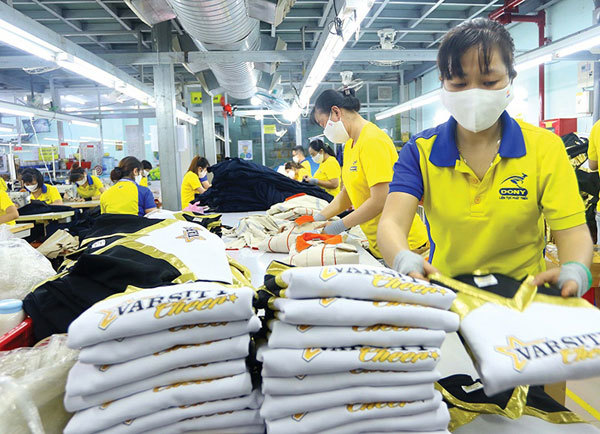Vietnam: Cash injection to give economy lease of life
A gigantic economic recovery and development programme worth nearly $35 billion is expected to drive the economy to a higher level of growth.
A gigantic economic recovery and development programme worth nearly $35 billion is expected to drive the economy to a higher level of growth, with focus to be placed on supporting enterprises and individuals as well as increasing investment in infrastructure development.
The programme, drafted by the Ministry of Planning and Investment, will be scrutinised by the government before being considered and adopted by the National Assembly in December. The programme, to be deployed the next two years, is set to cover four components expected to help the economy grow by another 1 per cent annually, meaning 6.5-7 per cent across 2021-2025.
The approximate $34.78 billion is expected to be mobilised from saved recurrent spending, government bond issuance, non-budget state-owned financial funds, and foreign exchange reserves funds, as well as loans from financial institutions. The mobilisation of capital for the programme will increase public debt, which will still stay at a controlled level, at 47 per cent of GDP in 2022 and 49 per cent in 2023.
The four components consist of the opening of the economy closely linked with fighting against COVID-19; providing social security and employment ($1.44 billion); recovery of enterprises, cooperatives, and business households ($16.08 billion); and infrastructure development ($9.56 billion).
Considering the recovery of enterprises and others, the programme aims to lift these entities out of difficulties via reductions of taxes and fees as well as lending rates. Notably, transport, aviation, and railway firms are expected to benefit from government guarantees for loans that they obtain for investment restructuring and new investment. They will also be likely to be offered some incentives in taxes and fees.
Meanwhile, tourism businesses are to be offered financial assistance in COVID-19 insurance packages, electricity costs in 2022, and event organisations. Those operating in the agro-forestry-fishery sector may get supported in input costs for fertiliser, seedling, machinery, digital technology application, electricity, and costs for specialised examination.
Regarding infrastructure development, the programme is aimed to spur aggregate demand, generate employment, consume goods, and attract private investment. In the long term, it is hoped a further improvement will be felt in the quality of infrastructure, especially roads.
According to the Asian Development Bank, there has not been sufficient financial support from the Vietnamese government.
The support was mainly in the form of deferral of taxes and land rental and the size of the support remained modest, as compared with other countries (with fiscal support of up to 3 per cent of GDP in the Philippines, 6 per cent in Malaysia, and 10 per cent in Thailand).
For some businesses that were heavily affected by COVID-19 with revenue deterioration and no profit, deferral of VAT and corporate income tax have fewer impacts than the tax cuts.
At the World Economic Forum’s Country Strategic Dialogue on Vietnam 2021 held online on October 29, Prime Minister Pham Minh Chinh stated that in infrastructure alone, Vietnam has a great demand for investment between now and 2030, totalling up to $30 billion per annum.
According to the World Bank, Vietnam should need to pay more attention to supporting those vulnerable to the pandemic and boosting infrastructure development which will help the country create more jobs and consume more goods and materials.
“Vietnam is facing challenges in restarting the economy after a prolonged lockdown, but positive dynamics observed in October would suggest continued pickup and strengthening of growth in coming months,” the bank said in a recent bulletin on Vietnam’s economy.
“Fiscal policy interventions would help, including through tax relief, acceleration of investment project implementation and social assistance to the needy. In this light, the approved VAT reduction for businesses in travelling, hospitality, and entertainment in November and December is expected to help to boost weak domestic demand in this subsector,” the bulletin said.
“As the economy reopens and the number of new confirmed cases is increasing, continued rapid pace of vaccination and vigilance in testing and quarantining should help avoid a new wave of infections forcing new restrictive measures to protect lives.”
The Central Institute for Economic Management has proposed three stages in the upcoming economic recovery and development programme. In the first stage, lasting until next spring, a focus should be placed on fighting COVID-19 in combination with boosting public investment and furthering business climate reforms.
The second stage, covering then until the end of 2023, should be centred on loosening macroeconomic policies in order to stimulate the economy’s demand. The third stage thereafter should see macroeconomic policies normalised and an increase in economic institutional reforms.
Source: VIR


 English
English




